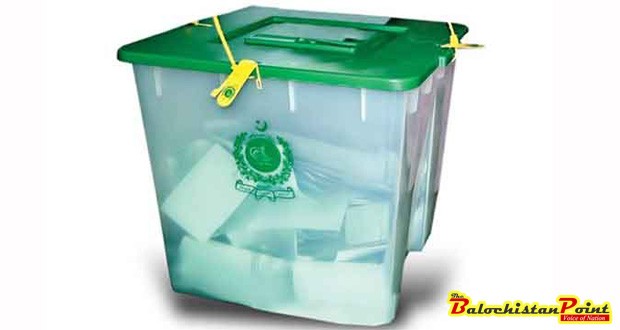Adnan Aamir
On April 2, an agreement was inked by PTI and PML-N to form a judicial commission to investigate allegations of rigging in the general elections of 2013. Justice Nasirul Mulk, Chief Justice of Supreme Court of Pakistan has chosen himself to lead that commission. On Thursday, in its first sitting, the commission asked all political parties to submit any evidence of election rigging that they possess. The formation of the judicial commission is a promising development but there are no signs yet that it would focus on Balochistan as well.
General elections conducted on May 11, 2013 were arguably the second most rigged elections in the history of Pakistan after the 1977 elections. The majority of the political parties alleged rigging and termed them as “elections of returning officers.” PTI was the only party that took up the cause of election rigging. In fact, they used it as a pretext to topple Nawaz Sharif government but failed. PTI’s protests dominated a major part of the political landscape in 2014. The party focused on Punjab only and therefore rigging in other provinces, including Balochistan, has been completely forgotten. It’s because of PTI’s preferences that the current judicial commission is Punjab-centric.
The majority of people outside of Balochistan have no clue about the massive rigging that took place in the province. There are several instances that prove that there is absolutely no legitimacy of the 2013 elections, at least in Balochistan. For example, in Panjgur district elections could not take place due to the deplorable security situation. Contesting candidates wrote applications in their hand writing, stating that elections couldn’t take place and hence should be postponed. That document is still available on record and it has been presented in some television talk shows as well. Surprisingly, the candidates of National Party were declared winners, with thousands of votes, from two provincial constituencies of Panjgur on election night.
The incumbent Chief Minister of Balochistan, Dr. Abdul Malik Baloch represents PB-48 in Balochistan assembly. There is substantial proof available to challenge his victory from the provincial constituency situated in Turbat. Again documentary evidence is available which proves that 600 votes were increased for Dr. Malik by an Assistant Returning Officer from a polling station. On Election Day, Dr. Malik won by a lead of just 390 votes. So, an independent probe in the elections of PB-48 can easily de-seat the chief minister of Balochistan.
Mr. Mahmood Khan Achakzai, the leader of Pashtoonkhwa Milli Awami Party (PKMAP) has won elections from NA-259 Quetta. There are four provincial constituencies under NA-259 and those are PB-1, PB-2, PB-3 and PB-4. During elections, every voter casts two votes one for the provincial assembly and one for the national assembly. So, normally the total votes cast for a political party on all provincial assembly seats would be equal to votes cast on the relevant national assembly seat. Shockingly, the candidates of PKMAP on all four provincial constituencies have secured a little over 21,000 votes while Mr. Achakzai has secured over 38,000 votes in NA-259. How did half of the people who voted for Mr. Achakzai didn’t vote for their candidates in the provincial constituencies? Only independent probe into the matter can reveal the truth.
Mir Zafarullah Khan Jamali, former Prime Minister of Pakistan won NA-265 by securing 41,604 votes. The runner-up Mir Saleem Ahmad Khosa secured 35,743 votes. The disturbing fact in this case is the number of rejected votes which are an unprecedented 25,562. That’s the highest amount of rejected votes in any constituency of Pakistan in 2013 elections. It’s not hard to fathom that the rejected votes are four times greater than the difference between votes of the winner and the runner-up. Rejecting a vote is the arbitrary decision of the Presiding Officer and this means that there can be massive irregularity during vote rejection process, amounting to rigging. We can only speculate the truth, but an independent probe can easily reveal the reality.
Just four examples have been mentioned above among dozens of instances which might ‘hint’ towards rigging in Balochistan. This makes a perfect case for a full-fledged audit and probe of general elections in Balochistan. Due to its focus on Punjab, it’s less likely that the judicial commission will do justice to Balochistan. The terms of reference of this commission are that it will probe allegations of an organized attempt to defeat PTI and plot PML-N’s triumph in the elections. It’s quite clear that Balochistan was not the battlefield between PTI and PML-N and therefore it will escape the attention of the judicial commission.
The present Balochistan government, comprising of National Party, PKMAP and PML-N, often boasts that they are the representatives of the people. Using that argument they defend every decision that merits genuine criticism. This government is entrusted with making extremely sensitive and important decisions such as the fate of Rekodiq gold mines, the route of China-Pak economic corridor, among others. It would be a travesty if a government that has allegedly came to power through rigging, gets to makes these decisions. Therefore, a focused and full-fledged probe into elections in Balochistan is necessary not only for justice, but also to provide the much needed legitimacy to Balochistan government.
Courtesy: The Nation
Republished in The Balochistan Point on April 15, 2015
 Balochistan Point Voice of Nation
Balochistan Point Voice of Nation




